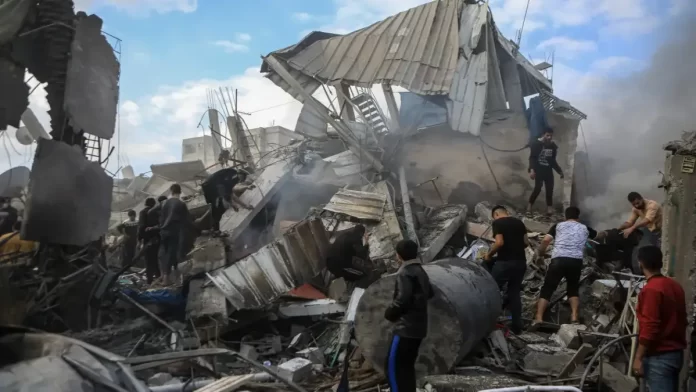Israel has issued a threat to invade Rafah, Gaza’s southernmost city, before the start of the Muslim holy month of Ramadan on March 10, if Hamas does not release the remaining hostages. Prime Minister Benjamin Netanyahu has declared a determination to complete the task in Gaza, as ceasefire negotiations have stalled. Netanyahu emphasized the possibility of securing the hostages’ release through robust military action and tough negotiations.
Rafah, situated on the Gaza-Egypt border within the Negev Desert on the Sinai Peninsula, holds strategic importance for the Israeli Defense Force (IDF) due to several key factors:
- Humanitarian Gateway: Rafah serves as a crucial entry point for humanitarian aid into the Gaza Strip, with the only operating checkpoint to Gaza located here. This facilitates the delivery of essential supplies to the population, including those affected by conflicts.
- Population Dynamics: With a significant population of over 170,000 people, Rafah also hosts approximately 1.5 million refugees who have fled conflicts between Israel and Hamas. This dense population presents unique challenges for military operations and humanitarian efforts.
- Hamas Stronghold: The IDF views Rafah as a stronghold of Hamas, the militant group governing the Gaza Strip. It is considered one of the last remaining areas under Hamas control within the enclave, making it a focal point for Israeli security concerns.
- Hostage Situation: Recent events, including the capture of hostages by Hamas, have heightened tensions in the region. The IDF believes that hostages may be held near Rafah, prompting Israeli military preparations for a potential operation to secure their release.
- Military Response: Israeli military leaders, including cabinet member Benny Gantz, have issued warnings of a potential military offensive on Rafah if the hostages are not released by a specified deadline. This underscores the seriousness of the situation and the IDF’s commitment to ensuring the safety of its citizens.
- International Diplomacy: The situation in Rafah has garnered attention on the international stage, with Egypt expressing concerns about potential border violations and the implications for regional stability. Additionally, the United States is advocating for a temporary ceasefire in Gaza and opposing any assault on Rafah, highlighting the importance of diplomatic efforts to mitigate conflict escalation.
In summary, Rafah’s location, population dynamics, and strategic significance as a Hamas stronghold underscore why it matters for the Israeli Defense Force and the broader geopolitical landscape of the region.



